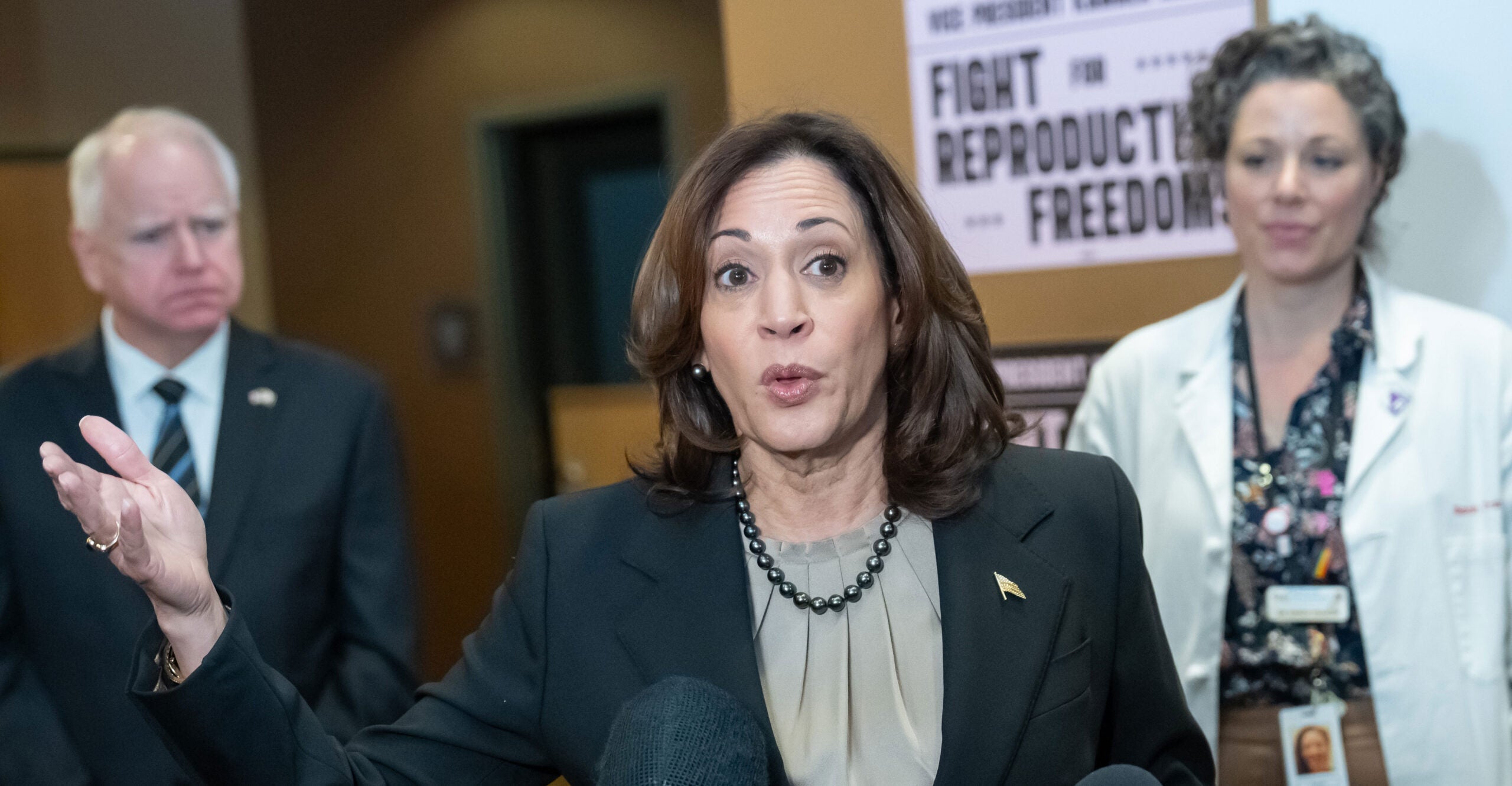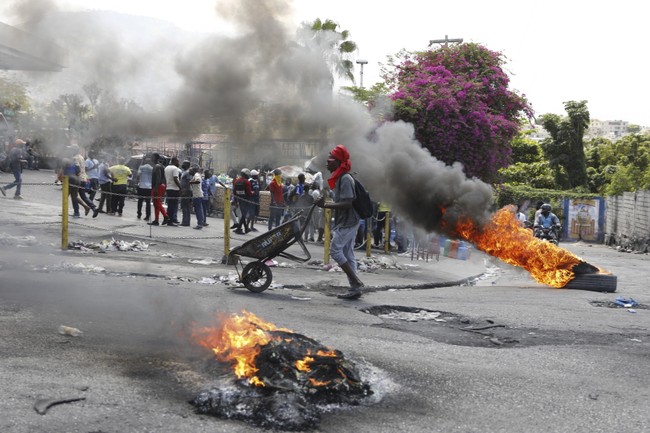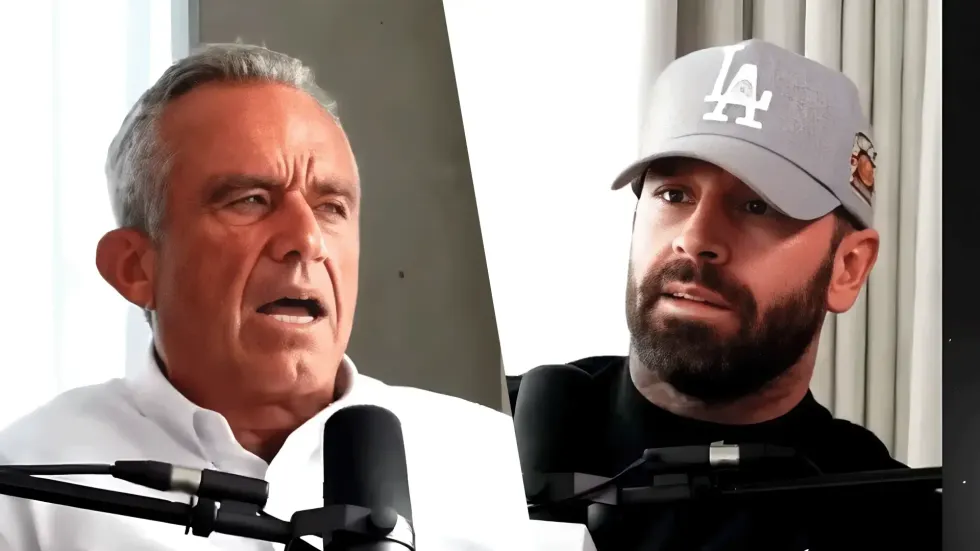
www.dailywire.com
The Most Rigged Debate In History
The presidential debate on Tuesday night was a full-scale disgrace.
The debate was rigged on behalf of Kamala Harris, soup to nuts, beginning to end.
ABC News should be ashamed of themselves. They destroyed any credibility they had. David Muir and Linsey Davis were doing the bidding of the people at the top of the chain of that network.
Harris has joked that Dana Walden, a 30-year friend of hers and co-chairman of Disney Entertainment (who owns ABC News), and Walden’s husband are responsible for Harris meeting her husband, Doug Emhoff.
The bias is real. Last night was a rigged game, beginning to end.
The most significant element of the debate — by far — was the moderators, who did themselves lasting damage. The legacy media made itself appear to be precisely what it is: a Praetorian Guard on behalf of the Democratic Party. David Muir and Linsey Davis were so far up Kamala Harris’ a**, they were performing active colonoscopies with their eyeballs.
It is impossible to overstate how far in the tank they were for Kamala Harris.
WATCH: THE BEN SHAPIRO SHOW
The basic format of the debate was this: The moderators asked Trump a question about how terrible his policies were, and then immediately swiveled to ask Harris how terrible Trump’s policies were. It was unbelievable.
There would be a question that effectively amounted to, “Mr. President, when did you stop beating your wife?” He would attempt to defend himself. Then, they would turn to Harris and say, “What do you think of him lying about beating his wife?”
It was insane.
And the data supports this. There were four active fact-checks last night. Donald Trump was the subject of all four fact-checks.
But it wasn’t just the fact-checks. It was also the interruptions in the follow-up, as they would interrupt Trump when he was talking. They always let Kamala Harris finish. They did not interrupt her a single time during the entire debate. Trump would be in the middle of the thought, and they would interrupt him or follow up and push him. They never followed up on Harris.
They never pushed her. Not once.
They pressed Kamala Harris zero times for follow-ups. Zero.
They will claim Trump is dishonest. But Harris lied incessantly. She repeatedly uttered outright, full-scale debunked lies ad nauseam last night.
But the media had a game plan, and the game was to follow hers. She laid out her game plan pretty early on, suggesting that it was all going to be about the playbook, the lies, and the grievances.
Tickets for “Am I Racist?” are on sale NOW! Buy here for a theater near you.
The media picked up on that playbook; they were going to repeat the playbook all night long.
What has been apparent for months is that the media are not going to do the job of informing the American people about Harris. If you watched that debate last night, you came away with zero new information about her.
You know no more about Kamala Harris and her positions today than you knew yesterday or the day before.
Trump’s best moment came on abortion. He pointed out that the Democrats are radical on abortion, which is true. And he pointed out that Harris’ vice presidential pick, Tim Walz, has been in favor of abortion across the board, which is also true. He said Democrats are against legislation like the Born Alive Infant Protection Act, that Democrats want to make it so that if a baby is “accidentally born” due to a botched abortion there will be no criminal liability to let the baby die.
That is true. Democrats do want that. That is why Tim Walz opposed a Born Alive Infant Protection Act in Minnesota, and eight babies have been born during botched abortions and died on the table in Minnesota. Trump said that, and he was correct.
So what did the moderators do? They lied. Because it turns out the “fact-checkers” are there to lie on behalf of Kamala Harris.
“Her vice presidential pick says abortion in the ninth month is absolutely fine,” Trump stated. “He also says execution after birth, its execution, no longer abortion, because the baby is born, is ok. And that’s not ok with me.”
“There is no state in this country where it is legal to kill a baby after it’s born,” moderator Linsey Davis interjected.
That’s a lie. They fact-checked Trump, and it was a false fact-check.
Ralph Northam, the former governor of Virginia, actually said that if a baby is accidentally born alive during an abortion, you put the baby off to the side, and make the baby comfortable until you decide what to do with the baby.
They lied about this because Linsey Davis and David Muir are liars, lying on behalf of their preferred political party.
I would bet David Muir and Linsey Davis have been saying to each other over coffee and to the rest of their colleagues for years and years, “You know, if I ever get Trump in front of me, here’s what I’m going to ask him. And if he lies, I’m gonna fact-check him so hard, I’ll make his head spin.” They’ve been prepping this for years.
Cabot Phillips, who covers election-centered news for The Daily Wire and was actually at the debate with the rest of the media, said the media in the spin room were actively cheering and guffawing during the debate, mocking Trump, actively groaning at him.
There is an entire media apparatus that is designed to propagandize on behalf of Harris, and they made themselves apparent last night in that room.
Harris lied later, saying Trump would sign a ban on abortion nationwide. Not only is that not true, JD Vance, who is pro-life, has also said that’s not true.
So, she lied to the moderators. Fact-checked? Of course not. Of course not.
Where were the fact-checkers? Off in the cornfield where no one knows?
Trump himself tried to prompt the moderators, asking, “You should ask: Will she allow abortion in the eighth month? Ninth month? Seventh month?” He turned to Harris, “Would you do that?” He turned back to the moderators: “Why don’t you ask her that question? Because under Roe v Wade, you could do abortions in the seventh month, the eighth month, the ninth month, and probably after birth.”
Harris responded, “That’s not true.”
Yes, it’s true. Yes, it’s true.
So where were the fact-checkers? Where were they when Harris repeated the Charlottesville lie? Where were they when she repeated the “bloodbath” lie when Trump was actually talking about an economic bloodbath?
If there were a professional guild in charge of moderating debates, these people would be out on their a**es. But of course, there isn’t. So they will be vetted and celebrated by the mainstream media as having done a wonderful job.
I do think the American people are smart enough to see through a lot of this.
I think the American people can see that the media rigged this debate on behalf of Harris.
There are two months to go. That’s still a long time. If the Trump campaign focuses on defining who Harris is — a hard-core leftist — and sticks to that, pummels her on that, Trump can win.
But they won’t be fighting just the Harris campaign.
They’ll be fighting the legacy media centipede every step of the way.
















